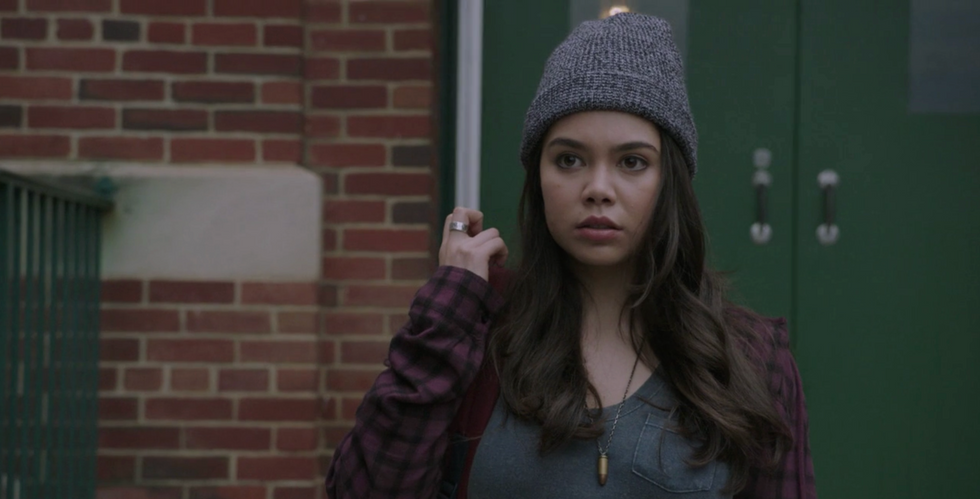I distinctly remember begging my mother to let me watch "Glee" while in junior high. I was a little late in the series—so many seasons had already aired—but my persistence paid off, and soon enough, I was binge-watching the available seasons on Netflix. While this story doubles as the first meet-cute of my love affair with Netflix, it also illustrates the popularity of shows such as "Glee," which incorporate the performing arts, high school drama, and serious issues into one cleanly presented, expertly entertaining package.
And following in this long tradition comes "Rise," an NBC series following a diverse high school theatre troupe as they push back against convention and opposition by staging "Spring Awakening" instead of a play about pirates.
"Rise" is well aware of the shadows it stands in, and makes a concerted effort to straddle the line between different-yet-not-unrecognizably-different. After all, you gotta hook the "Glee" fans while also hooking the "This Is Us" fans, amiright?
The main differentiating factor between "Rise" and its predecessors seems to be the grittiness that "Rise" flaunts, both in its cinematography and subjects. Filmed with through the shakiness of a handheld camera, every scene is so unsaturated that every scene seems to scream "Take me seriously!"
And the show matches its color-correcting pace by pace with the plot, name-dropping serious issues as fast as it can: Homelessness. Poverty. Debilitating illnesses. Religion. Self-internalized homophobia. Alcoholism. Football as a powerful institution. The defunding of the arts. I almost got whiplash bouncing from one topic to another in the pilot episode.
That being said, "Rise" is nowhere near a bad show. There's something inherently satisfying about watching a drama unfold on two different levels onscreen, even if the most we see of "Spring Awakening" rehearsal is the most dramatic moments and montages of them singing songs they somehow learned while we blinked. On a purely superficial level, the meta-drama of the show is sure to hook any viewer, whether you consider the series a guilty pleasure or one of the greater pleasures of life.
Even if you're not a hard-core musical theater geek (I most certainly am not), don't pass the show over. After all, it's not really about theater at all: it's trying to be too musical theater what "Friday Night Lights" was to football (Jason Katims is the showrunner of both series). Really, the extracurricular is just an excuse, a backdrop to set the town and its inhabitants against.
Speaking of the characters, they are truly what sets "Rise" apart. Helmed by Auli’i Cravalho (AKA the voice of princess "Moana") and Damon J. Gillespie, the will-they-won't-they tension between the waitress and the quarterback transcends the usual high school flirtation by introducing the serious topics we touched on before as a roadblock—things like needing to work or caring for an ailing parent preventing them from making a date, instead of being sabotaged by the mean girl. Though, of course, there's plenty of noticing your crush kissing someone else and then running away in tears as dramatic music swells.
Both Auli’i Cravalho and Damon J. Gillespie are people of color, a laudable fact when you recall that "Glee" was helmed by two white leads. But the diversity doesn't stop there: transgender and homeless students are also represented. The diversity of all characters is presented in a way that isn't patronizing them but rather affirming.
Diversity is never held up as a calling card in "Rise": it's acknowledged respectfully and then moved on from, making the main focus of the show the characters themselves, not their "special" identities. In a world that's been calling for this kind of representation for a long time, "Rise" is a reinvigorating breath of fresh air that's long overdue.
In essence, "Rise" is a more diverse "Friday Night Lights," a less intense "This Is Us," and a grittier "Glee." That is to say, it's something all of its own: a combination of the three, or simply the best parts of them. Don't watch "Rise" expecting novel television or to see something new. Watch it expecting to see something you've seen before, only better.

















